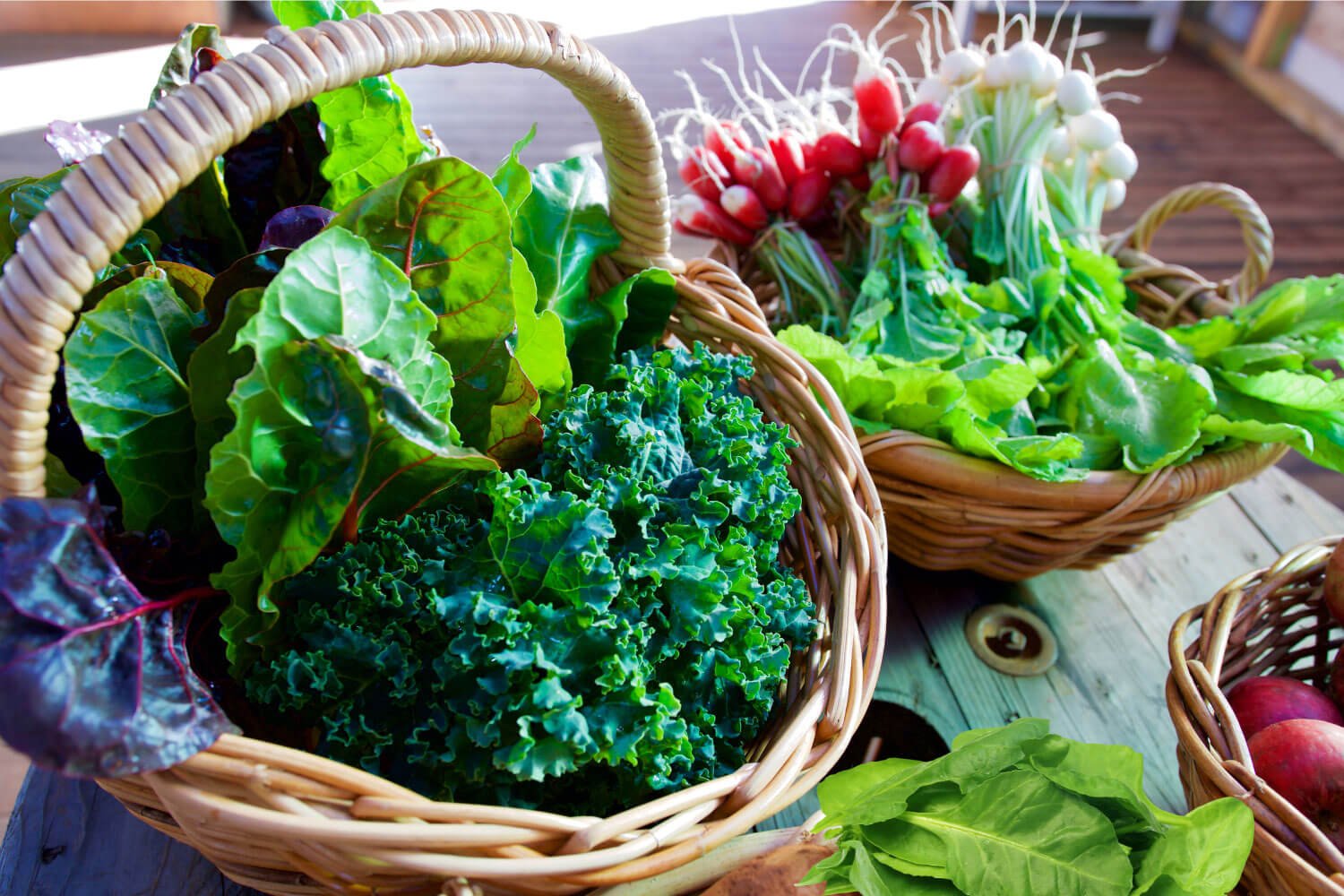The Power of Leafy Green Vegetables: Nutrition, Health Benefits, and Recipes
Leafy green vegetables are nutritional powerhouses that have been staples in human diets for millennia. From spinach and kale to collard greens and arugula, these vibrant greens offer a wealth of health benefits, a range of subtle flavors, and remarkable culinary versatility. Let’s explore why leafy greens deserve a central place on your plate.
Nutritional Profile of Leafy Green Vegetables
Leafy greens are low in calories yet packed with essential nutrients. Here are some common nutrients found in varieties such as spinach, kale, Swiss chard, collard greens, and arugula:
Vitamins: Rich in vitamins A (as beta-carotene), C, K, and several B vitamins (notably folate).
Minerals: High in calcium, magnesium, iron, and potassium.
Fiber: Excellent source of dietary fiber for digestive health.
Phytonutrients: Contain antioxidants such as lutein, zeaxanthin, and flavonoids that help protect against chronic disease (Slavin & Lloyd, 2012).
Low in Calories: Most leafy greens contain fewer than 50 calories per cooked cup.
Health Benefits
Heart Health
Leafy greens are associated with reduced risk of cardiovascular disease. Their high levels of dietary nitrates help lower blood pressure and improve arterial function (Lidder & Webb, 2013).
Bone Strength
Vitamin K in leafy greens plays a crucial role in bone metabolism and helps prevent osteoporosis.
Eye Health
Lutein and zeaxanthin protect the eyes from age-related macular degeneration (AMD) (Moeller et al., 2000).
Cancer Prevention
The glucosinolates in some greens like kale and collards are studied for their potential role in cancer prevention (Traka & Mithen, 2009).
A fresh bunch of arugula — peppery, crisp, and packed with antioxidants like lutein and vitamin K. A small green with bold flavor and big nutritional benefits.
Taste and Culinary Notes
Leafy greens offer a spectrum of flavors:
Spinach: Mild, slightly sweet.
Kale: Earthy, robust, sometimes bitter.
Arugula: Peppery and spicy.
Collard greens: Mild with a hint of bitterness.
Swiss chard: Slightly sweet with earthy undertones.
These greens adapt well to various cooking methods—raw in salads, sautéed, steamed, or blended into smoothies.
Two Easy Recipes Featuring Leafy Greens
Sautéed kale — simple, hearty, and full of flavor. Lightly cooked with olive oil and finished with a splash of lemon for brightness.
Sautéed Garlic Kale
Ingredients:
1 bunch kale, stems removed, leaves chopped
2 cloves garlic, minced
1 tbsp olive oil
1 tsp lemon juice
Salt and pepper to taste
Instructions:
Heat olive oil in a large skillet over medium heat.
Add garlic and sauté until fragrant (about 30 seconds).
Add kale and cook, stirring frequently, until wilted and tender (about 5-7 minutes).
Finish with lemon juice, salt, and pepper. Serve warm.
2. Spinach and Arugula Salad with Lemon-Tahini Dressing
Spinach and arugula salad with lemon-tahini dressing — fresh, crisp, and full of flavor. Topped with avocado, feta, and almonds for a satisfying, nutrient-rich meal.
Ingredients:
2 cups fresh spinach
1 cup arugula
1/4 cup sliced almonds (toasted)
1/4 cup crumbled feta
1/2 avocado, sliced
Dressing:
2 tbsp tahini
1 tbsp olive oil
Juice of 1 lemon
1 tsp honey or maple syrup
1-2 tbsp water (to thin)
Salt and pepper
Instructions:
Whisk together dressing ingredients until smooth.
Toss spinach, arugula, almonds, feta, and avocado in a bowl.
Drizzle dressing over salad and serve immediately.
🥗 Meal Prep Pick: S’well Stainless Steel Salad Bowl Kit
For readers who love to prep salads ahead or pack healthy lunches, this stylish and practical bowl from S’well is worth a look. The 64 oz stainless steel container includes a removable tray for toppings and a 2 oz container for dressings—perfect for keeping things crisp until it’s time to eat. It’s leak-proof, dishwasher safe, and easy to transport, whether you're headed to work, the gym, or the park.
👉 Shop the S’well Salad Bowl Kit on Amazon
#ad As Amazon Associates, we may earn from qualifying purchases.
Conclusion
Incorporating leafy green vegetables into your daily diet is a delicious and impactful way to support long-term health. Whether enjoyed raw or cooked, these greens contribute essential nutrients and can help protect against chronic diseases. Try the recipes above or experiment by adding greens to your favorite dishes!
Want more nutrition tips and recipes?
Check out our full collection in the Nutrition category — packed with expert-backed articles, healthy recipes, and everyday advice to help you eat well and feel your best.
References
Lidder, S., & Webb, A. J. (2013). Vascular effects of dietary nitrate (as found in green leafy vegetables). British Journal of Clinical Pharmacology, 75(3), 677-696. https://doi.org/10.1111/j.1365-2125.2012.04420.x
Moeller, S. M., Jacques, P. F., & Blumberg, J. B. (2000). The potential role of dietary xanthophylls in cataract and age-related macular degeneration. Journal of the American College of Nutrition, 19(5), 522S-527S.
Slavin, J. L., & Lloyd, B. (2012). Health benefits of fruits and vegetables. Advances in Nutrition, 3(4), 506-516. https://doi.org/10.3945/an.112.002154
Traka, M. H., & Mithen, R. F. (2009). Glucosinolates, isothiocyanates and human health. Phytochemistry Reviews, 8, 269–282. https://doi.org/10.1007/s11101-008-9103-7




